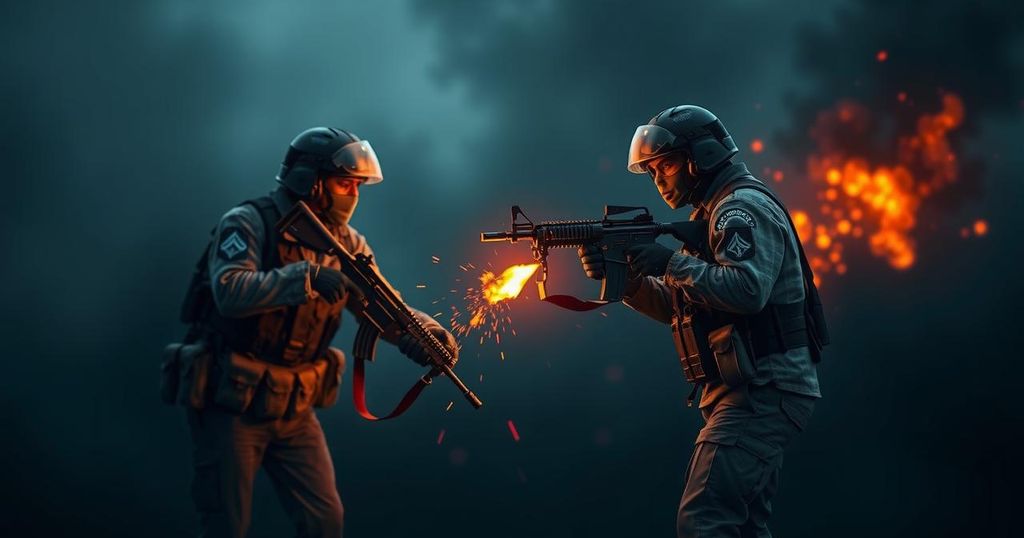Angola has accused the Rwandan-backed M23 rebels of violating a ceasefire agreement in eastern DRC. The ceasefire, mediated by Angola, was disrupted by clashes with government-aligned militia Wazalendo, who reportedly regained control of Kalembe after initial fighting. Angola condemned the actions as a serious breach, exacerbating an ongoing humanitarian crisis in a resource-rich region plagued by violence.
The government of Angola has officially accused the M23 rebels, who are supported by Rwanda, of breaching a ceasefire agreement established in the eastern region of the Democratic Republic of the Congo (DRC). This ceasefire, which had been in effect since early August due to mediation efforts by Angola, was disrupted by skirmishes reported on Sunday between M23 forces and the Wazalendo militia, an armed group aligned with the DRC government, in North Kivu province. According to local reports, the M23 seized control of the town of Kalembe on that day, which the Angolan government described as “a flagrant violation” of the ceasefire terms. The statement from Angola condemned the actions of the M23, emphasizing that such hostilities threaten ongoing initiatives aimed at achieving a sustainable resolution to the conflict in the region. Witnesses indicated that the clashes began early Sunday and involved exchange of heavy armament between the M23 rebels and the Wazalendo forces, with reports confirming that the Wazalendo regained control of Kalembe later in the day. The involvement of Rwandan or Congolese armed forces during the clashes remains unverified. Angola’s public condemnation is noteworthy, as it is uncommon for governments to comment on the frequent altercations between M23 and Kinshasa-affiliated militias. The M23’s resurgence since late 2021 has resulted in significant territorial gains that have displaced thousands of individuals, exacerbating the humanitarian crisis in eastern DRC. The town of Kalembe, with a population of roughly 40,000, is strategically located on vital routes leading to valuable mineral deposits, further complicating the region’s violent landscape which has persisted for over thirty years.
The M23, predominantly comprised of Tutsi fighters, has been a pivotal force in the ongoing conflicts in eastern DRC, a region marked by a complex interplay of local and foreign militias. The ceasefire brokered by Angola was a significant step towards stabilizing a situation that has seen numerous clashes over control of strategic areas rich in resources, including gold and coltan. The M23’s resurgence has led to concerns regarding the humanitarian implications of the ongoing conflict, including the displacement of civilians and escalating violence, which has drawn regional attention and intervention attempts from neighboring countries.
In summary, Angola’s accusation against the M23 rebels highlights the fragile nature of the ceasefire established in eastern DRC. The recent clashes underscore the complexities of re-establishing peace in a region long afflicted by violence and insurrection. The international community must remain vigilant as the situation evolves, recognizing the imperative for sustained diplomatic efforts to resolve the conflict and address the dire humanitarian needs of those impacted.
Original Source: www.barrons.com






